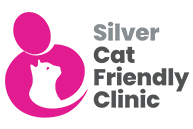You are what you eat!
We have seen so many patients with upset stomachs over Christmas, we have decided rather than concentrating on a specific patient for our case of the month a general GI Info Article might be interesting and of use!
We see patients with symptoms such as vomiting, diarrhoea, stomach ache and a loss of appetite throughout the year but the festive period seems to encourage even more problems than normal. Here are a few commonly asked questions about gastro-intestinal problems and corresponding advice based on current thinking in the Veterinary world.
My pet isn't eating. For Dogs and Cats skipping the odd meal is not serious unless the trend is becoming more frequent and they are losing weight. However in our smaller pets such as Rabbits and Guinea Pigs if they stop eating this is potentially really serious and we would recommend that you contact your Vet straight away.
My pet has been sick. Rabbits and Guinea Pigs cannot vomit so any foodstuffs coming out of their mouths is an indication that all is not well and they need to be seen by a vet straight away. Dogs and Cats will as part of their normal behaviour eat grass and vomit on occasion. A one off is fine, but if they are vomiting and have diarrhoea, or are inappetent and miserable then please contact your Vet. Blood in vomit is a serious problem and needs Veterinary attention straight away.
My pet has diarrhoea. Diarrhoea in small pets is very serious and can be quickly life threatening, they need Veterinary help immediately. However, with our Dogs and Cats they often will eat things that disagree with them and as part of their natural coping mechanisms, will get diarrhoea, but still be quite bright and hungry. In these cases, feeding a bland diet (white fish/chicken and rice and no treats) will normally resolve this problem within 24 hours. Diarrhoea that continues for more than 48 hours needs attention and often a stool sample is really helpful.
I have stopped feeding my pet but they still have diarrhoea why is this? Diarrhoea normally results from either a lack of absorption of fluid from the bowel, often because food is pushed through more quickly, or because fluid is being lost into the bowel due to inflammation. For many years starving your pet was thought to be the sensible option when treating diarrhoea but now the reverse is thought to be true. The best way for an inflamed and damaged bowel to recover is to have food within it. Food should be bland, low fat and easily digestible. Cooked white meats such as chicken, turkey, cod or coley are ideal mixed with rice or pasta. It should be fed in small amounts and water should be available at all times.
There is blood in my pets faeces do I need to worry? Small streaks of fresh blood, accompanied by straining when toileting, is often a sign of lower bowel discomfort and inflammation (colitis). This is often less serious and will typically resolve quickly with supportive treatment. Large volumes of bloody diarrhoea or dark, sticky faeces is more typical of upper bowel or stomach bleeding and warrants rapid Veterinary attention. Any signs of bleeding should not be ignored and it is worth contacting your Vet for advice.
My pet has had diarrhoea can I catch it from them? Some causes of diarrhoea in our pets can be contagious to people (zoonosis). Common ones include Giardia and Campylobacter. General hygiene when handling your pet or cleaning up after them should avoid most risks, this includes proper disposal of waste and hand washing. Care should be taken to avoid exposure to very young, elderly or unwell members of your family if your pet has diarrhoea and contact your GP for advice if any in contact people show signs of stomach upset. Some infections such as Giardia can stay in the environment for some time as a resistant cyst, it is therefore important to wash toys/bedding and avoid your pet toileting in areas of the garden used for children’s play.
My pet has diarrhoea and has been seen by a Vet but they have not prescribed antibiotics. A large proportion of causes of diarrhoea in our pets will improve with supportive treatment. These are often due to viral infection, scavenging behaviour or a sudden diet change. Antibiotics are often not necessary to treat these cases as there is not a specific bacterial cause. Bacterial causes of diarrhoea, such as Campylobacter, Salmonella and E. coli often need specific antibiotics to be treated so a faecal sample for analysis may be required before appropriate medication is started.
I want to change what I am feeding my pet, how do I do this? The important thing when introducing new foods or changing from one diet to another is to do it gradually. A complete diet change should happen over a week to 10 days and involve gradually decreasing the old diet and increasing the new. The same is true for introducing new training treats or chews; start off with small amounts at a time. We commonly see pets with sickness or diarrhoea after their owner has given them a new tasty treat which they have gobbled up all in one go.
What should I do if I think my pet has eaten something poisonous? Don’t panic but if possible take your pet away from the source and check their mouth to see if any remains that can be removed. Contact a Vet immediately for advice and if you have any further packaging information about ingredients/strength/amount then this can be very useful. Taking a photo of any vomit or the item (ie mushrooms) can be helpful too. If it is an uncommon toxin or poison then we have 24 hour access to the Veterinary Poisons Information Service (VPIS) who are on hand to give advice about specific treatments and anti-dotes.
What should I do if I think my pet has swallowed something? Foreign bodies are a common cause of vomiting and illness in pets and can be life threatening. Due to their inquisitive nature young pets are particularly at risk. If you suspect that your pet has swallowed something they shouldn’t have than always seek Veterinary advice. Not all foreign bodies have to be removed surgically but waiting to see what happens can be a risky decision.
Hopefully this will give you a bit of a head start in caring for your pet’s digestive upsets. We are always happy to give advice so pop in or give us a call if you are ever concerned.




